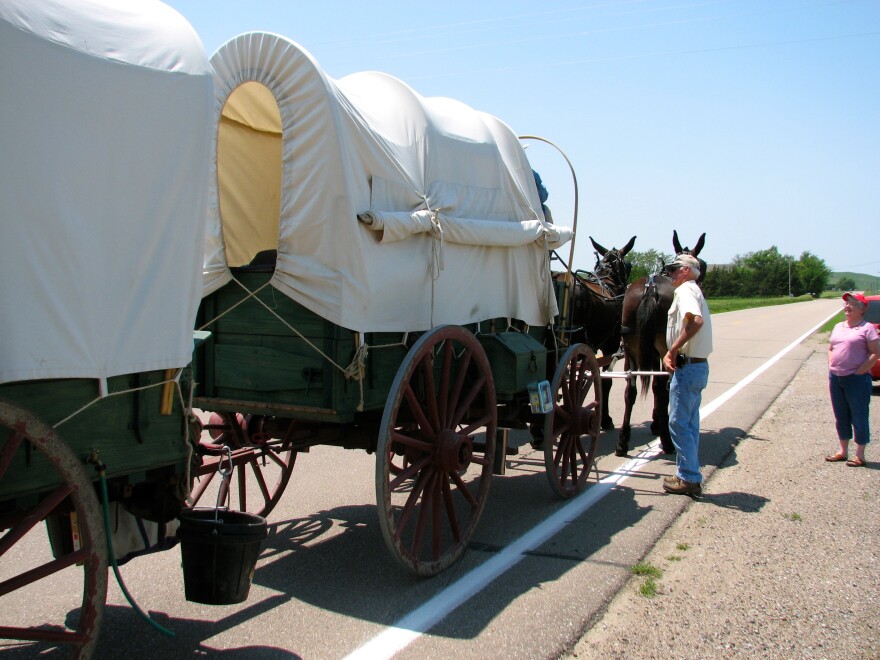Looking for something to do this summer? Here’s an idea — get yourself a covered wagon and some mules, and head out onto the Oregon Trail.
As it turns out, all the supplies you need for the arduous journey can be found within a few hours of the metro — which makes sense, considering that Independence and St. Joseph were two of the original Missouri towns outfitting pioneers for the long trip west.
East Coast-based history nut and authorRinker Buck made the journey from St. Joseph to Baker City, Oregon, over four months in 2011. Inspired by a portion of the Oregon Trail he came across on a trip to the Flint Hills of Kansas, he and his brother set off to bring glory back to “the trail that made America.”
Buck recently released a book chronicling his journey, The Oregon Trail, A New American Journey and he spoke about his adventures with Up To Date host Steve Kraske.
Outfitting yourself for the journey
There’s no need to travel far to gather supplies for the trek.
“Believe it or not, there's a pretty big collector community out there. There's probably about 30 or 40 really good carriage wagon restoration shops around the country,” Buck said.
He found a wagon online and brought it to Werner Wagon Works in Horton, Kansas, for repairs and upgrades. Horton is about 50 miles west of St. Joseph.
“In addition to that, I had them build a trail pup or commissary cart based on a civil war design. It’s a half wagon or a cart that carried about 1,500 to 2,000 lbs of water, hay, oats. etc., and that’s what made us independent,” he said.
Mules were available, as well. Buck got his team of three from the Amish in Jamesport, Missouri, about 65 miles east of St. Joseph.
The journey
Once you've gather supplies, prepare yourself for a rough journey — a covered wagon is hardly a smooth ride.
“Our backs were sore for the first 2 or 3 weeks,” Buck said.
Covered wagons usually don’t have springs, which makes them last longer, but also means that any bump in the road will be absorbed by the passengers.
“It's a wonderful way to travel and you’re enveloped by the environment ... but for the first few weeks until your body hardens up, it's tough,” he said.
About half of the trail is farmland and dirt roads and the other half is now paved.

“Highway 36 from St. Joe out towards Marysville, Kansas, that highway is the exact Oregon Trail they just decided to pave it during World War I because they needed to bring beef faster to the slaughter yards, so that they could ship over to the doughboys in Europe fighting the war,” Buck said.
To Buck’s surprise, all of the original campsites remained.
And if you decide to face the hardships of traveling the country in a horse drawn wagon, at least you’ll have the law on your side.
“Believe it or not, they never changed the laws, which worked out in my favor. Horse-drawn wagons, equine-drawn wagons have the right of way to this day," Buck said.
Intrigued by the idea of traveling the old fashioned way, but don’t feel up to a full-blown Oregon Trail adventure?
Pioneer Trails Adventures in Independence offers a shorter-term taste of the simple life.
Or there’s always The Oregon Trail computer game to give you a virtual experience of crossing the country in the 1800s.


